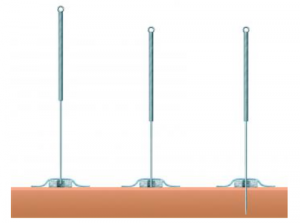
Streitberger Placebo Acupuncture Needle
Table of Centents
The perceived low quality of acupuncture research is a complex issue with several contributing factors. Here are some reasons that can help explain why many acupuncture research studies are considered low quality:
Methodological challenges
Acupuncture research often faces methodological challenges due to the nature of acupuncture treatment itself. Factors such as the use of placebo controls, blinding of participants and practitioners, and the difficulty in designing double-blind studies make it challenging to conduct rigorous randomised controlled trials (RCTs) that meet the highest standards of research design.
Blinding difficulties
Blinding, or masking, is particularly challenging in acupuncture research since it is difficult to create a placebo or sham treatment that mimics the real experience of acupuncture. This can introduce bias and make it difficult to draw definitive conclusions from the study results.
Heterogeneity of acupuncture treatments
Acupuncture is a highly individualised treatment, and different acupuncturists may use different techniques, point selections, and treatment protocols. This variability makes it difficult to standardise acupuncture interventions across studies, leading to inconsistent results and difficulty in comparing findings across different trials.
Limited funding and resources
Acupuncture research may receive less funding and resources compared to other areas of medical research. This limited funding can impact the quality and scope of research studies, including the sample size, study duration, and access to advanced research methodologies.
Publication bias
Studies with positive or significant results are more likely to be published, while studies with negative or inconclusive results may remain unpublished. This publication bias can skew the overall body of evidence and lead to an overestimation of acupuncture’s effectiveness.
Language barriers
Acupuncture research conducted in non-English languages may not be easily accessible to the wider scientific community. This can limit the inclusion of valuable studies in systematic reviews and meta-analyses, potentially affecting the overall quality of the evidence.
Despite these challenges, efforts are being made to improve the quality of acupuncture research. Initiatives such as developing standardised treatment protocols, implementing rigorous study designs, and conducting large-scale multi-centre trials aim to enhance the evidence base for acupuncture and improve the quality of research in this field.
